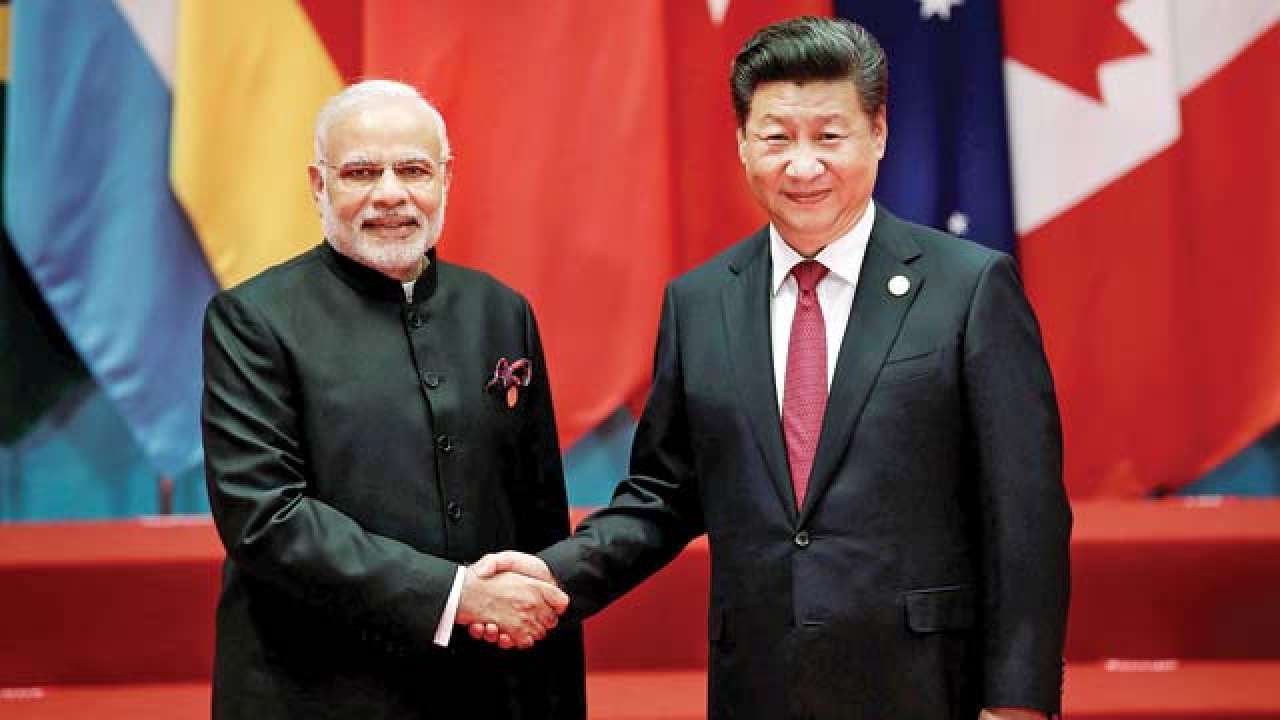
Foreign Office mandarins, including Foreign Secretary Vijay Gokhale, have told the government that after Doklam — which Prime Minister Narendra Modi has raised to the category of surgical strikes — it is now time to cool off. Many reasons are cited, but the principal one is that you cannot have two active fronts, especially, when the level of collusion between ‘iron brothers’ China and Pakistan is at an all-time high.
The problems with China are long term and the power differential so big that a ‘reset’ is essential, especially after Foreign Minister Wang Yi’s famous comment: “The Chinese dragon and Indian elephant must not fight each other, but dance with each other. If China and India are united, 1 plus 1 is not equal to two, but 11. Despite some tests and difficulties, China-India relationship continues to grow.”
But let’s recall that on March 26, India’s ambassador to China Gautam Bambawale told the South China Morning Post that the problem in Doklam arose due to China attempting to unilaterally alter the status quo. Promptly China’s Foreign Ministry spokesperson Hua Chunying rebutted: “There is no question of China changing status quo unilaterally. Doklam belongs to us.” She emphasised that thanks to our (China’s) wisdom, we have properly resolved the issues and India should learn lessons.
Incidentally, Bambawale had also told the South China Morning Post that there was a need to demarcate the 3,488 km undemarcated and undelineated border. Chunying had retorted: “China’s position is clear and constant. The east, middle and western sectors are yet to be officially demarcated. We are exploring mutually acceptable solutions.” Nothing so far has been happening on this front.
The truth about Doklam is that in our quest to defuse the situation, we made substantial concessions — like disengagement when it should have been a simultaneous withdrawal to positions held before June 19, and embargo on the changing status quo. We could have hung on as we were at an advantageous position. It was Beijing that was eager for a modus vivendi as BIMSTEC and the 19th Party Congress were imminent. Instead, we got a poor deal, allowing the People’s Liberation Army (PLA) to build substantial military infrastructure in North Doklam, improving their strategic posture. Still, Defence Minister Nirmala Sitharaman told select media that another Doklam is not possible.
When Prime Minister Modi assumed power, he had invited President Xi Jinping to India assuming that he could break the deadlock on the border question while reducing the trade deficit, neither of which was accomplished. When Modi personally raised the question of demarcating LAC at the joint press conference, Xi ignored the question. But Xi was accompanied by the PLA in Chumar, Ladakh and these soldiers did not return till well after he had left India. Three years later, Xi is the President for life and the most powerful helmsman after Mao.
In cosying up to China, India is apparently taking the pragmatic line. Gokhale visited China on February 23, followed by Modi’s phone call to Xi, congratulating him for becoming President for life. The U-turn on Tibet, the issue most sensitive for China, began with the advisory by Cabinet Secretary listing unilateral concessions to China: the 60th anniversary of the Dalai Lama’s arrival in India and a ‘Thank You India’ commemoration to be held in New Delhi was shifted to Dharamsala. The 20th flagship annual conference being held by IDSA — India and China in Asia: Making of a New Equilibrium, which would have discussed the Belt and Road initiative (BRI) and topics that would have riled China was cancelled at the 11th hour. This is quite unprecedented, considering IDSA is only a think tank but it is funded by the government.
That’s not all. An inter-faith ceremony at Raj Ghat where the Dalai Lama would be present was postponed. The Dalai Lama’s visit to Manipur to attend the Indian Science Conference (ISC) was also scrapped. Finally, the 7th World Parliamentary convention on Tibet to be held in New Delhi this month was also shifted to Dharamsala.
These concessions seem to be a bid to ensure that Modi’s meeting with Xi on the sidelines of the Shanghai Cooperation Organisation (SCO) summit at Quingdao, China in June is a success, and a number of positives have emerged recently. India and China are to hold the new strategic economic dialogue this month. The Chinese trade minister Zhong Shan had visited New Delhi last month. China has finally put Pakistan on the grey list of the Financial Action Task Force (FATF).
But such feel good measures should not obscure larger strategic issues. India has consistently told China that maintenance of peace on the border is an important prerequisite for further development of India-China relations. But the Special Representative border talks are long dead as the political initiative of 2005 was scuppered by China as also the demarcation of the LAC. Instead, the 11th round of the working mechanism on consultation and coordination for India and China border affairs was held at New Delhi last month.
In its annual report, the parliamentary standing committee on foreign affairs has concluded that China has established a ‘choke-hold’ on India’s neighbourhood. But Bambawale’s statement that India is not worried that China has strong relations with its neighbours is quite puzzling. Similarly, China, rather facetiously, has said that it appreciated Nepal’s efforts towards adopting an independent foreign policy and developing friendly and positive relations with its neighbours. “Such cooperation,” it added, “can lead to trilateral cooperation and India joining BRI.”
India must remember that it will never catch up with China in comprehensive national power and it is currently paying for its obsession with Pakistan and neglect of the China border. We must also bear in mind the ‘reset’ with China will impose other constraints on India, including its options with the US.
The author is a retired Major General and a defence and strategic affairs expert. Views are personal